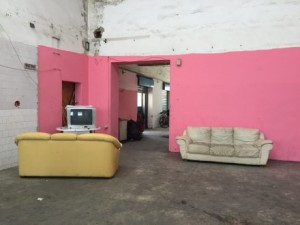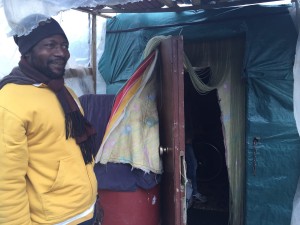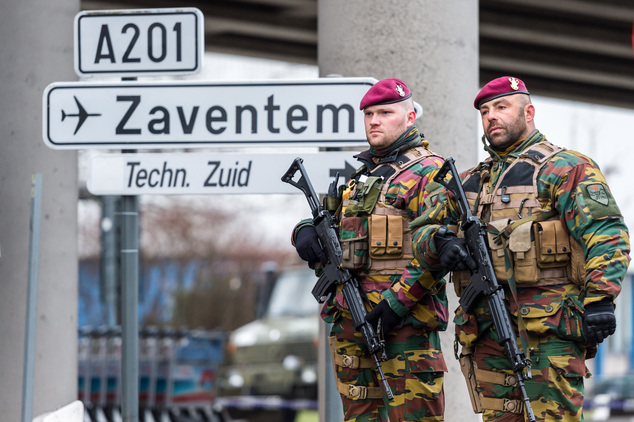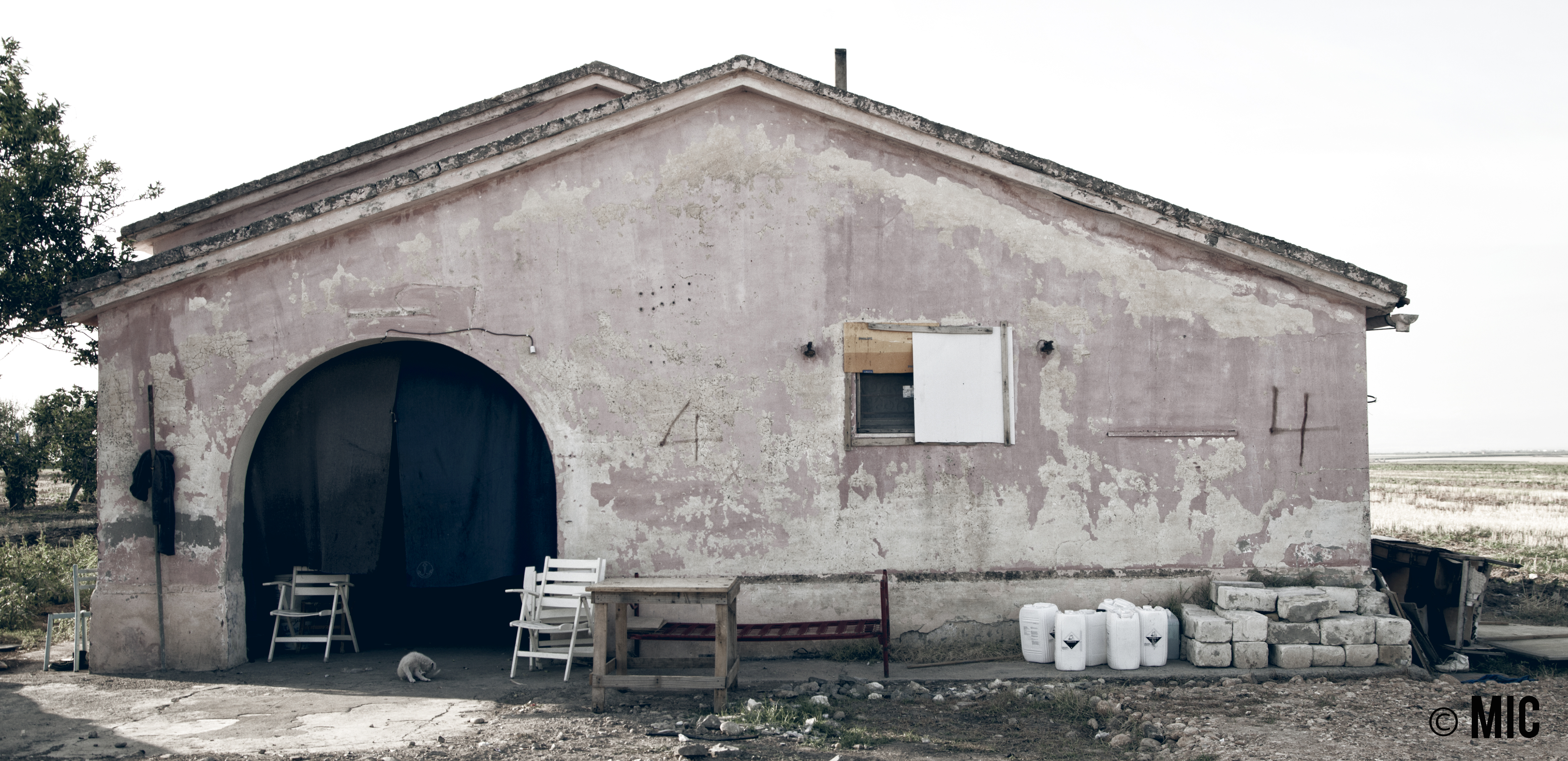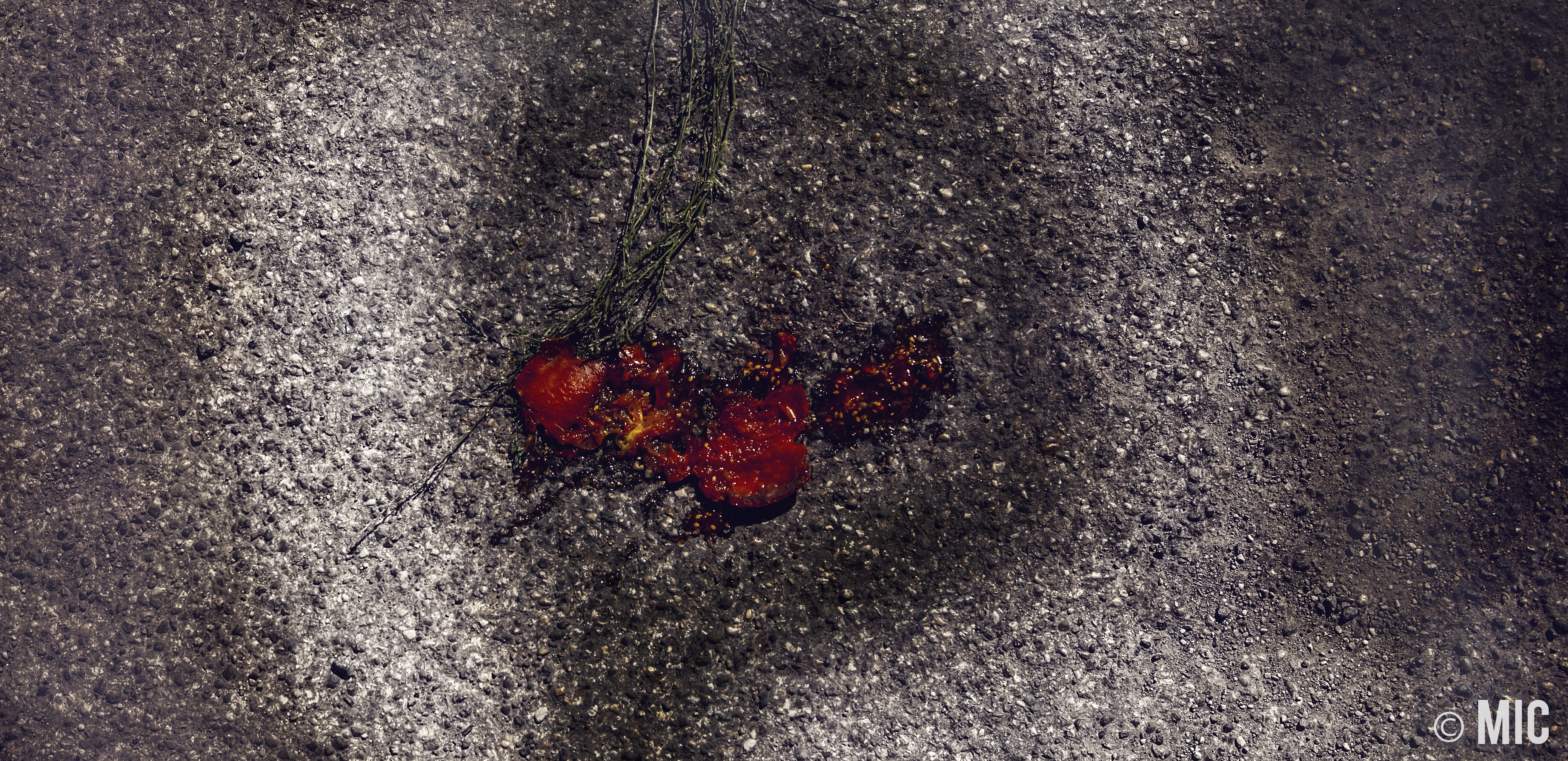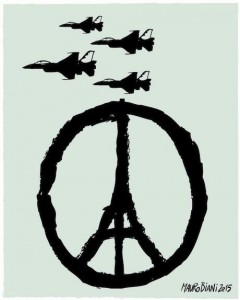
Mauro Biani (http://maurobiani.it/)/Il Manifesto. All rights reserved.
While a few prominent public intellectuals in Europe, like Slavoj Zizek and Bernard-Henry Levy, rather brusquely ask us to ‘get real’ about the Islamic State threat by closing territorial borders and identifying the enemy among us –a narrative that comes dangerously close to what some neoconservative pundits are promoting since some years across the Atlantic- Middle East experts confront the global public with a series of uncomfortable truths. I present three of them here.
- Scott Atran, who testified before the US Senate armed service committee and the UN Security Council, warns us not to consider ISIS as a band of mindless or nihilistic extremists, but rather take seriously their moral mission to ‘save the world’…
“… what inspires the most uncompromisingly lethal actors in the world today is not so much the Qur’an or religious teachings. It’s a thrilling cause that promises glory and esteem.”
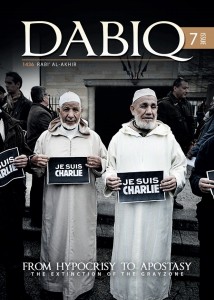 A terminology that keeps popping up in this discussion is that of the Grey Zone. Originally referring to an editorial in ISIS’s online magazine Dabiq (and not to Primo Levi’s chapter about camp life in Auschwitz –although some level of comparison would certainly be welcome here), it describes the twilight zone inhabited by Muslims worldwide, in which they are required to make a choice to live between the ‘kufra’ (infidels) or the caliphate –a choice the Paris attacks were meant to intensify. In that sense, the attacks were indeed about sovereign power, though not in the way Bernard-Henry Levy interprets it –but actually as a realm of life and death. Or, as Claudio Minca and Rory Rowan mention in their recent book where they discuss Carl Schmitt’s ideas on sovereignty and space:
A terminology that keeps popping up in this discussion is that of the Grey Zone. Originally referring to an editorial in ISIS’s online magazine Dabiq (and not to Primo Levi’s chapter about camp life in Auschwitz –although some level of comparison would certainly be welcome here), it describes the twilight zone inhabited by Muslims worldwide, in which they are required to make a choice to live between the ‘kufra’ (infidels) or the caliphate –a choice the Paris attacks were meant to intensify. In that sense, the attacks were indeed about sovereign power, though not in the way Bernard-Henry Levy interprets it –but actually as a realm of life and death. Or, as Claudio Minca and Rory Rowan mention in their recent book where they discuss Carl Schmitt’s ideas on sovereignty and space:
“Existential conflict should be understood here to indicate ‘concrete’ life and death struggles involving the potential loss of human life and not as a metaphor for some generalized concept of social conflict… [Carl] Schmitt explicitly stated that, ‘the friend, enemy, and combat concepts receive their real meaning precisely because they refer to the real possibility of physical killing’ (authors’ italics). Thus, the political is a source of meaning more fundamental than that found in other spheres of human life, since it concerns the very question of existence as such.”


- The other uncomfortable truth is that while media indeed does report about terror bombings across the world, people react emotionally to what is dear and close to them. In his in-depth analysis of the Paris-Beirut comparison, which is brought up continuously to evoke disparate global concern (and make people feel guilty about it), Vox journalist Max Fisher quotes tweeter Jamiles Lartley who says, quite succinctly, I think: “people should be permitted to grieve and seek redress for specific violence and suffer without being redirected or corrected.” Instead Fisher presents the more complicated question what causes disproportionate care and concern for one country over another in terms of grief and daily struggles (not in the least in hosting the refugee populations that are driven away exactly by the conflicts Western public intellectuals are avoiding in their analysis: in this context I remember an El Pais cartoon some time back saying ‘we are fleeing the wars that once were yours’…). Clearly ‘the media’ is too easy a villain to accuse the lack of global empathy here…
- The most uncomfortable truth of all is presented to us by Nafeez Mossadeq Ahmed on Open Democracy: that of the regional geopolitics that continue to feed ISIS. Saudi Arabia, Qatar, the UAE, Kuwait and Turkey –all key Western allies– played lead roles in funnelling support to ISIS precursor Al Qaeda. And Turkey sponsors ISIS both through direct military cooperation and through actively facilitating ISIS black market oil sales.
“ISIS, in other words, is state-sponsored –indeed sponsored by purportedly Western-friendly regimes in the Muslim world who are [also, paradoxically] integral to the anti-ISIS coalition.”
Safeguarding the grey zone, Ahmed -but also Etienne Balibar adds, thus not only requires Western publics to hold their governments accountable for such foreign policy mischiefs but it also means actively rejecting exactly the type of band-wagoning Levy and Zizek appear to propose:
“… safeguarding the “grey zone” means more than bandying about the word ‘solidarity’ – it means enacting citizen-solidarity by firmly rejecting efforts by both ISIS and the far-right to exploit terrorism as a way to transform our societies into militarized police-states where dissent is demonized, the Other is feared, and mutual paranoia is the name of the game. That, in turn, means working together to advance and innovate the institutions, checks and balances, and accountability necessary to maintain and improve the framework of free, open and diverse societies.”
p.s. after days of frenetic searching across hospitals, a friend of a Parisian friend who went missing the nigth of the attacks has finally been found… death. I mourn her loss –not for any particular reason, but because she is a human being. I hope that is still permitted.
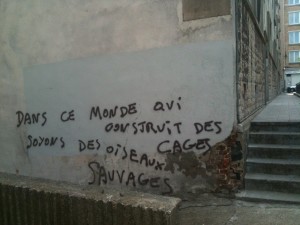
Brussels 2012 (co Timothy Raeymaekers)



